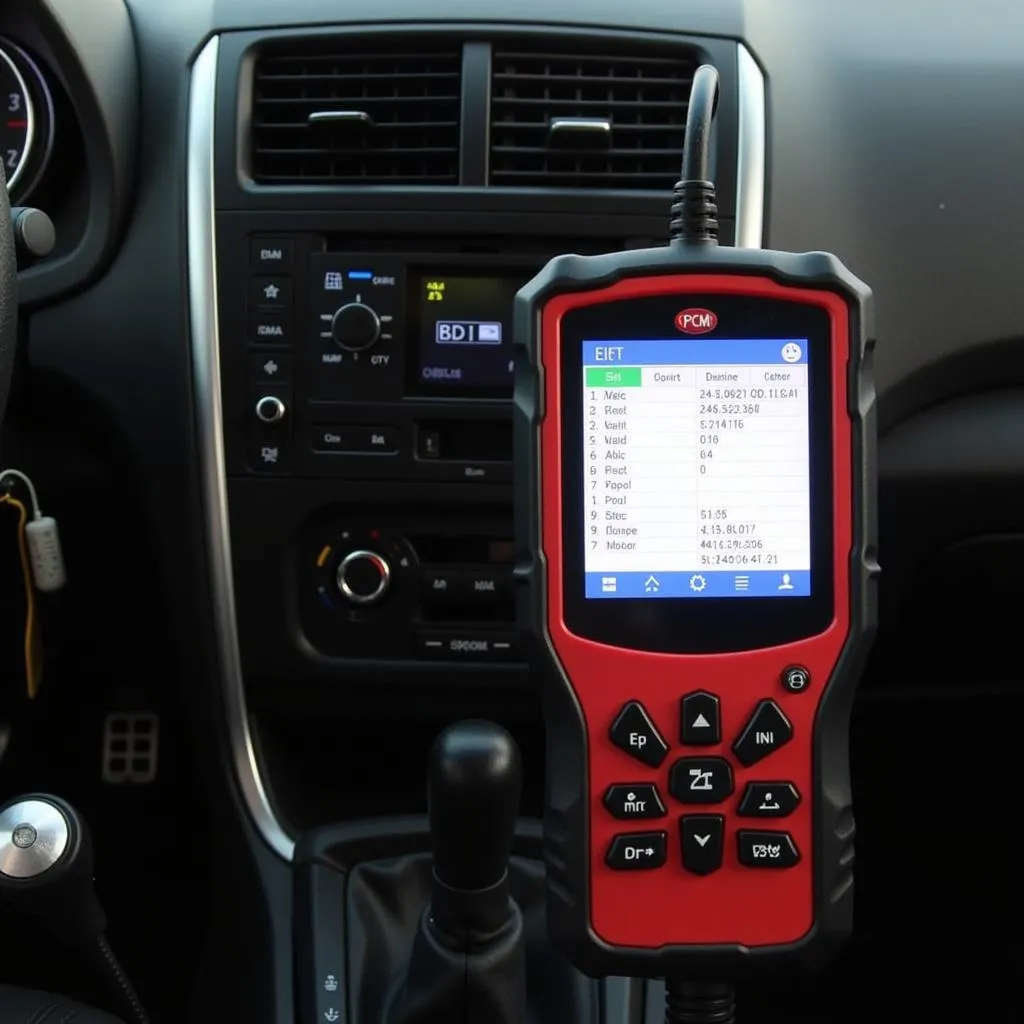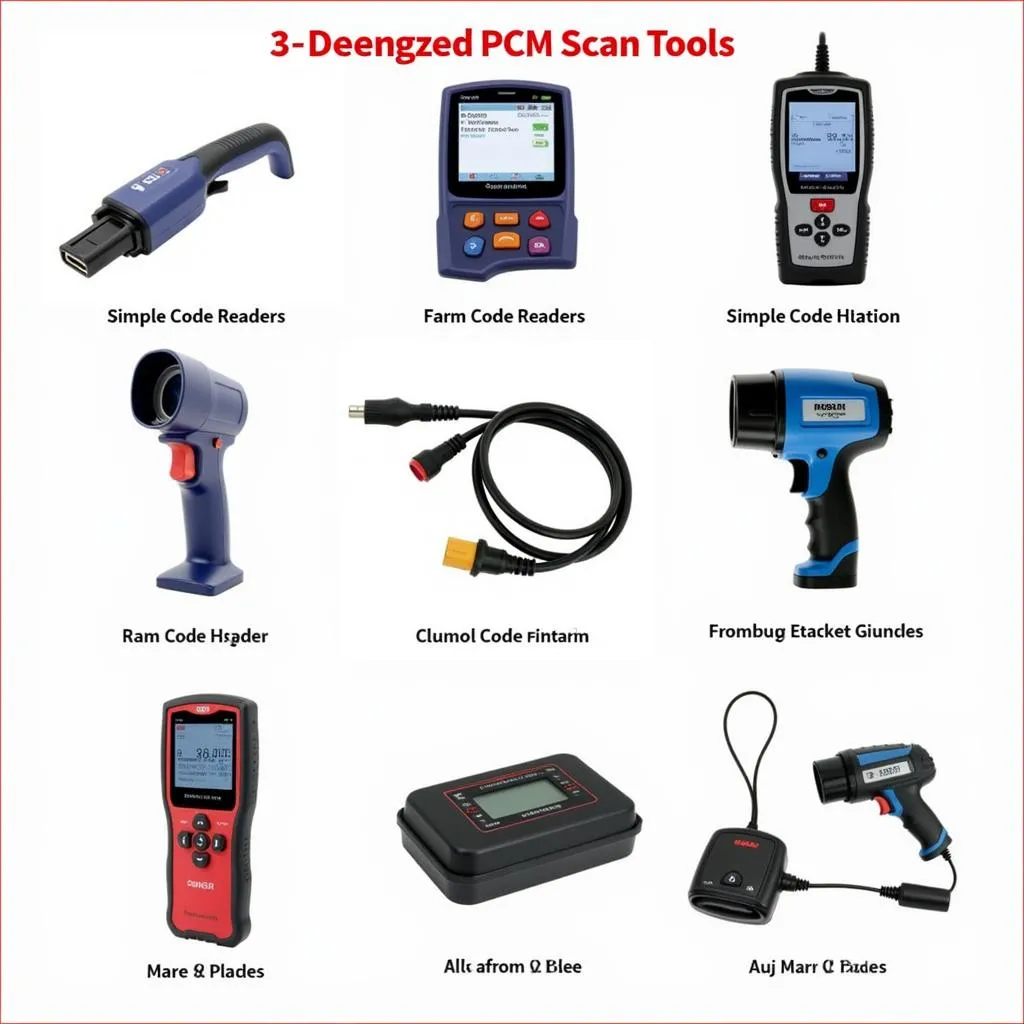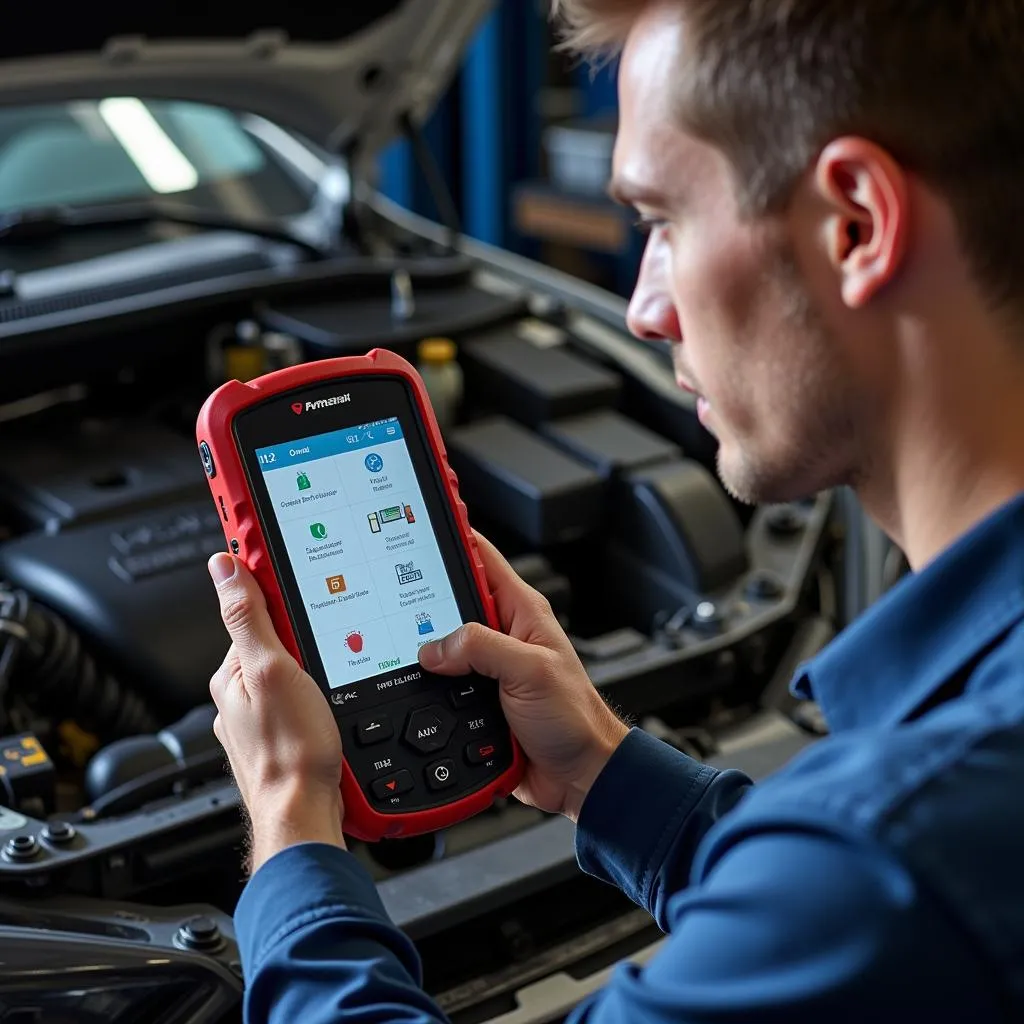A PCM scan tool is an indispensable tool for any car owner or mechanic. It allows you to communicate with your vehicle’s engine control unit (ECU) and access a wealth of diagnostic information. Whether you’re troubleshooting a check engine light or looking to monitor your car’s performance, a PCM scan tool can be incredibly valuable.
What is a PCM Scan Tool and How Does it Work?
PCM stands for Powertrain Control Module, also known as the Engine Control Unit (ECU). The PCM is essentially the brain of your vehicle, responsible for controlling a wide range of engine and transmission functions. A PCM scan tool acts as a bridge between your car’s computer and a user interface, allowing you to read and interpret diagnostic trouble codes (DTCs), monitor live data streams, and even perform certain functions like resetting the check engine light.
 PCM scan tool connected to a car's OBD-II port
PCM scan tool connected to a car's OBD-II port
Types of PCM Scan Tools: Finding the Right Fit for You
There are various types of PCM scan tools available, each with its own set of features and capabilities.
- Basic Code Readers: These are the most affordable option and are designed to read and clear basic DTCs.
- OBD-II Scanners: These tools offer more advanced features than basic code readers, such as the ability to view live data streams and access manufacturer-specific codes.
- Professional-Grade Scan Tools: These are the most comprehensive and expensive options, often used by professional mechanics. They offer a wide range of advanced features, including bi-directional control, special functions, and access to a vast database of technical information.
Choosing the right PCM scan tool depends on your specific needs and budget. If you’re a car enthusiast who wants to perform basic diagnostics, an OBD-II scanner is a good option. However, if you’re a professional mechanic, you’ll need a professional-grade scan tool to access all the necessary features.
 Different types of PCM scan tools catering to different user requirements
Different types of PCM scan tools catering to different user requirements
Benefits of Using a PCM Scan Tool
Using a PCM scan tool offers numerous benefits for car owners and mechanics alike.
- Early Problem Detection: Regular scans can help identify potential issues before they escalate into major problems, saving you time and money on costly repairs.
- Improved Fuel Efficiency: By monitoring live data streams such as oxygen sensor readings and fuel trim values, you can identify issues that might be affecting your car’s fuel economy.
- Enhanced Performance: A PCM scan tool can help you fine-tune your car’s performance by allowing you to adjust parameters like ignition timing and fuel delivery.
- DIY Repairs: For the mechanically inclined, a scan tool empowers you to diagnose and potentially fix certain problems yourself, reducing reliance on mechanics.
 Mechanic utilizing a PCM scan tool for car diagnostics
Mechanic utilizing a PCM scan tool for car diagnostics
Choosing the Right PCM Scan Tool: Key Factors to Consider
When choosing a PCM scan tool, consider these key factors:
- Vehicle Compatibility: Ensure the scan tool is compatible with your car’s make, model, and year.
- Features and Functions: Determine the specific features you need, such as live data streaming, bi-directional control, and special functions.
- User Interface: Opt for a scan tool with a user-friendly interface and clear, easy-to-understand menus.
- Budget: Set a budget and explore options within your price range. Remember to balance features with affordability.
Conclusion
A PCM scan tool is a powerful tool that can provide valuable insights into your vehicle’s health and performance. By understanding the different types of scan tools, their benefits, and key factors to consider when choosing one, you can make an informed decision that meets your specific needs and empowers you to take control of your car’s maintenance.


